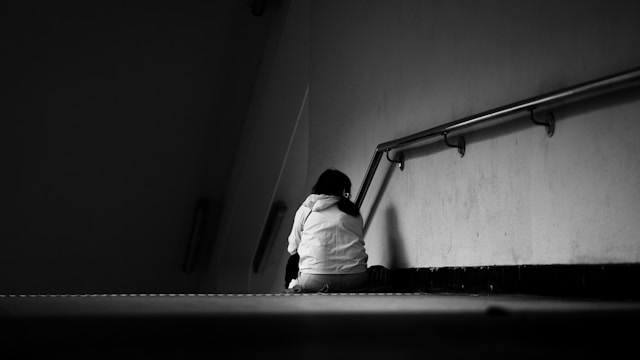Millions of women around the world still face laws that deny them equal citizenship rights as of July 31, 2025. These laws stop women from passing their nationality to their children or foreign spouses on the same terms as men, causing serious problems for families and entire societies.
Discriminatory nationality laws remain a major barrier for women in many countries. According to the latest data, 28 out of 190 economies still do not allow women to give their citizenship to their children equally with men. For example, in Kuwait and Somalia, only men can pass on their nationality to their children. In addition, 50 economies make it harder for women to pass citizenship to their foreign spouses. In Cameroon and Bangladesh, foreign husbands of citizen women face tougher rules than foreign wives of citizen men. These laws affect millions of families and create long-term problems for women and their children.

The numbers show the scale of the issue. Over 2.5 billion women and girls worldwide are still denied equal rights under the law, including citizenship rights. If change continues at the current slow pace, it could take 300 years for women to reach full legal equality globally. This slow progress highlights the urgent need for faster reforms to nationality laws.
At a major event on July 17, 2025, at the United Nations Headquarters, world leaders, activists, and organizations gathered to discuss the importance of legal equality for women and girls. The event, co-hosted by Equality Now and UN Women, called for urgent action to end discriminatory nationality laws. Speakers stressed that equal citizenship rights benefit not just women, but entire societies by supporting family unity, economic growth, and social stability.
The World Bank’s Women, Business and the Law Report (2025) also made clear how these laws hurt women’s chances to work, inherit property, get an education, and access healthcare. When women cannot pass on their citizenship, their children and spouses may not be able to go to school, get medical care, or find jobs. This keeps families in poverty and makes it harder for women to escape discrimination.
UN Women has made it a top priority to collect better data and invest in policies that support gender equality, including changing nationality laws. However, progress has not been steady everywhere. In some countries, conservative political movements and anti-gender campaigns have pushed back against reforms, making it harder to achieve equal citizenship rights for women.
Practical Implications for Women and Families
The effects of these laws are felt every day by women and their families:
- Access to Services and Employment: When women cannot pass their nationality to their children or spouses, their families may not be able to get healthcare, go to school, or work legally. This increases the risk of statelessness, where people have no country to call their own, and deepens economic insecurity.
- Family Unity: Discriminatory nationality laws can split families apart. In mixed-nationality marriages, spouses may face legal and social barriers that keep them from living together or accessing basic rights.
- Economic Impact: When women are blocked from passing on their citizenship, they are less able to take part in the economy. This limits their ability to support their families and slows down national growth.
Key Stakeholders and Their Positions
Several major organizations are working to change these laws:
- UN Women is pushing for faster legal reforms to achieve gender equality in nationality laws as part of its broader work for women’s rights.
- Equality Now is calling for immediate action to end discriminatory nationality laws, pointing out that legal equality helps everyone in society.
- The World Bank highlights the economic need to remove these barriers so women can work and support their families.
- The Inter-Parliamentary Union (IPU) supports efforts by lawmakers to create gender-equal nationality laws, seeing this as key for sustainable development and children’s rights. The IPU will hold its Sixth World Conference of Speakers of Parliament in Geneva from July 29–31, 2025, with a focus on gender equality and legal reforms.
Historical Context and Background
These problems are not new. Discriminatory nationality laws have existed for a long time, based on old ideas that only men should pass on their nationality. International agreements like the Beijing Declaration (1995) and the Sustainable Development Goals (SDGs) have called for equal citizenship rights for women, but progress has been slow and uneven.
In recent years, some policies, like the Global Gag Rule brought back by the United States 🇺🇸 administration, have made it even harder to push for gender equality worldwide. These setbacks show that progress is not guaranteed and can be reversed.
Recent Developments and Policy Changes (2024–2025)
Despite these challenges, there have been some positive steps. The July 2025 UN event brought together leaders and groups from around the world to demand change. UN Women continues to collect data and invest in policies that support women’s rights. The World Bank’s latest report gives strong evidence that changing nationality laws will help not just women, but whole economies.
However, the fight is far from over. Many countries have seen a rise in anti-gender movements, which use political power and money to block reforms. These groups argue against equal citizenship rights for women, making it harder to pass new laws.
Future Outlook and Pending Developments
Looking ahead, there are reasons to hope for progress. The upcoming IPU conference in Geneva is expected to bring new political energy to the push for equal citizenship rights. Advocacy groups and international organizations are working hard to speed up legal changes, aiming to close the citizenship gap for women within the next decade. They hope to cut down the 300-year timeline for full legal equality.
UN Women and the World Bank will keep collecting data and tracking progress. This information will help guide new laws and policies, making sure that reforms are based on real needs and evidence.
Step-by-Step Process for Addressing Discriminatory Nationality Laws
Countries that want to fix these problems can follow a clear process:
- Data Collection and Analysis: Governments and international groups collect information on how nationality laws affect men and women differently.
- Legislative Review: Lawmakers look at current nationality laws to find areas where women are treated unfairly.
- Stakeholder Consultation: Governments talk to women’s rights groups, civil society, and affected families to understand the real-life impact of these laws.
- Drafting and Enacting Reforms: Lawmakers write and pass new laws that give women equal rights to pass on their citizenship to children and spouses.
- Implementation and Awareness: Governments run public education campaigns and train officials to make sure the new laws are followed.
- Monitoring and Reporting: Progress is tracked and reported to international bodies like the UN and IPU to make sure reforms are working.
Official Resources and Contacts
For those seeking more information or support, several organizations offer resources:
- UN Women is the leading global group on gender equality and women’s rights. Their website, unwomen.org, provides updates and resources.
- Equality Now is an international group fighting for women’s legal rights. Visit equalitynow.org for more details.
- The World Bank’s Women, Business and the Law project offers data and analysis on gender equality in law. See worldbank.org/wbl for reports and statistics.
- The Inter-Parliamentary Union (IPU) supports lawmakers working for gender equality. Their website is ipu.org.
For official information on nationality laws and citizenship, readers can visit the United Nations Treaty Collection, which provides details on international agreements related to citizenship and gender equality.
Conclusion and Next Steps
Millions of women and girls are still denied equal citizenship rights, with serious consequences for families, economies, and societies. Discriminatory nationality laws keep women from passing on their citizenship to children and spouses, making it harder for families to stay together and for women to take part in society.
As reported by VisaVerge.com, the push for equal citizenship rights is gaining momentum, but much work remains. Governments, lawmakers, and advocacy groups must act quickly to change these laws, educate the public, and make sure reforms are enforced. By working together, the world can move closer to true gender equality and a better future for all.
Women, families, and communities can help by staying informed, supporting advocacy efforts, and holding leaders accountable for progress. With continued effort and strong partnerships, equal citizenship rights for women can become a reality much sooner than 300 years from now.
Learn Today
Nationality laws → Legal rules determining how citizenship is transmitted to children or spouses in a country.
Statelessness → Condition where a person has no country recognized as their nationality under law.
Equality Now → An international organization advocating for women’s legal rights and gender equality.
Inter-Parliamentary Union (IPU) → Global organization of legislators promoting gender-equal laws and sustainable development.
Global Gag Rule → A US policy restricting funding for organizations supporting reproductive or gender equality rights worldwide.
This Article in a Nutshell
Millions of women worldwide cannot pass citizenship equally to children or spouses due to discriminatory laws. These laws harm families, limit economic growth, and risk statelessness. Global calls for reform grew louder in July 2025, urging urgent action to close citizenship gaps and empower women legally and economically.
— By VisaVerge.com








